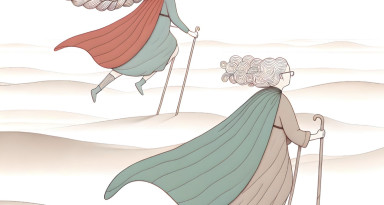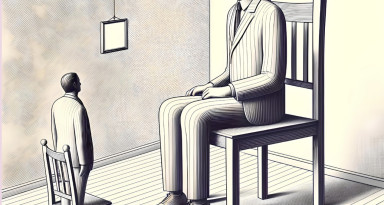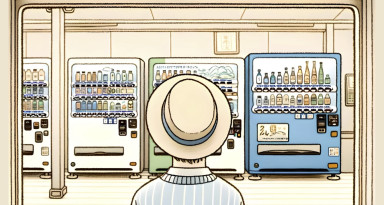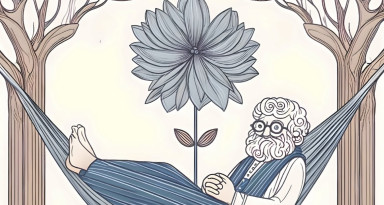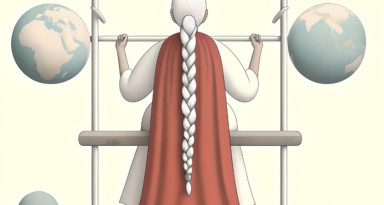For much of my early adult life, I viewed flourishing as a state of being that necessitated certain ingredients, much like a plant requires good soil, water, and a healthy dose of sunlight to bloom. The graceful rose, for instance, needs to be planted in rich, moist, and well-drained soil, and requires at least six hours of sunlight a day. Place the delicate rose in a garden bed overshadowed by a Eucalyptus tree and the roses won’t bloom. Competition for light, and water, is one thing, but some studies have shown that some Eucalyptus species can send allelopathic chemicals into the soil, suppressing understorey vegetation.
Flourishing, I thought, required the perfect location – one that was best suited to my needs and dreams. Should the place, therefore, be hot or cold? City or country? Close to home or further afield? Should I even move overseas to find this special spot, or be nomadic and travel about with no fixed abode?
My personal views on flourishing sent me on a decades-long pilgrimage around the world in search of that elusive spot; because once found, or so my theory went, I would be happy.
It’s not uncommon for humans to think about flourishing this way – a narrow focus on career success, or material success (riches), or self-perfection of some sort, like having the perfect body. Some people spend an entire life in pursuit of their own version of the ‘flourishing life’ – as I did with the ‘ideal’ location – and wonder why they do not feel any happier for it. “The typical unhappy man,” writes Bertrand Russell in The Conquest of Happiness, is one who has come to value one “kind of satisfaction more than any other, and has therefore given to his life a one-sided direction, together with a quite undue emphasis upon the achievement as opposed to the activities connected with it.”
Marked by the tragedy of losing both parents at a young age, Russell admits to being an unhappy child and adolescent. Although impeccably educated, he was plagued by self-loathing and bouts of unutterable boredom. “I had the habit of meditating on my sins, follies, and shortcomings. I seemed to myself – no doubt justly – a miserable specimen,” he wrote.
But as Russell aged, a mysterious emotion enveloped him – that of, for want of a better word, contentment, or even happiness; and as every year passed, he enjoyed his life even more. What was the source of this mysterious emotion? Or, putting it another way, had Russell stumbled upon a cure for the ordinary day-to-day unhappiness that many suffer?
In a dusty field, alongside a windy lake in Isla de Ometepe in Nicaragua, I had an epiphany of sorts about the conditions required for a flourishing life. The dust, combined with an unforgiving wind, had left me with an eye infection. It hurt to blink. My lodge, devoid of window panes, was visited by cows peering in, and the floor of the lodge was covered in dirt. But, oddly, it was here, within a hazy veil of dust, I met a group of people who, by all accounts, seemed to be flourishing. In a place of so little comfort – no paved roads, or restaurants, no shopping malls or sports stadiums – and with little entertainment other than absentminded cows grazing at the lake’s edge, I met a group of recently arrived missionaries on a two-year assignment to Nicaragua.
I accompanied the group on a trip to the supermarket. We needed food for the evening meal and a car trip to the nearby town seemed more palatable than watching cows scrape at dirt for sustenance. Little did I know that the supermarket excursion would take hours, and be, well, for the missionaries at least, so exhilarating. Wandering the tight aisles with their baskets, the missionaries were deeply captivated by just about everything – food items on shelves, ingredients, even packaging; they placed coconut water and yuca into trolleys with the relish of children discovering candy canes. It was as though the world were in technicolour. And, as we drove back to the camp in the car, the missionaries continued to comment on the film unfolding beyond their window – the exquisite beauty of the setting sun, the Spanish word for soap, unfinished second storeys on buildings, the patterned colours of parrots and how they compare to the ones in Costa Rica. Would I call it a zest for life, or even joy?
In all the places I’d travelled, it was in a barren dusty field in a roadless and forgotten camp in Nicaragua that I found people who were, by most definitions, flourishing.
After much consideration, Russell tried to pinpoint the reason for his own sense of heightened contentment as he aged. He surmised it was due, in part, to a diminishing preoccupation with himself. As the English philosopher aged, he naturally began to take a keener interest in the world around him, such as various branches of knowledge, individuals for whom he cared; he loved playing chess, gardening, hiking, and attending salons with other intellectuals; he founded schools and was actively engaged in political activism and philanthropy. “The more things a man is interested in,” he noted, “the more opportunities of happiness he has, and the less he is at the mercy of fate, since if he loses one thing he can fall back upon another. Life is too short to be interested in everything, but it is good to be interested in as many things as are necessary to fill our days.”
The person who adores cooking is happier than the person who dreads the chore of feeding their family. The person who loves to read is happier than the person who wiped their hands of literature on their final day of high school. “Suppose one man likes strawberries and another does not,” comments Russell. “The man who likes them has a pleasure which the other does not have; to that extent his life is more enjoyable and he is better adapted to the world in which both must live.”
The secret to flourishing, proposes the philosopher, is to be outward looking – towards the world and its myriad offerings – and less focused on the empty self, on one’s fears and misgivings. The self can only offer so much fodder for contemplation, and a life centred on oneself will undoubtedly become stale and barren. “Vanity, when it passes beyond a point, kills pleasure in every activity for its own sake, and thus leads inevitably to listlessness and boredom,” he writes.
On the contrary, the more interests you have, the more opportunities you have for experiencing wonder. (The camera enthusiast is captivated by the ‘magic hour’ at sunset; the home sewer examines the pleats on their friends’ skirt; the political activist devours the morning headlines). The more actively engaged you are with life, the more attentive you are to the world, to your friends and family, to your interests and passions, the more you will see the world in technicolour.
And, like a delicate rose, if you find yourself planted under the shade of a Eucalyptus tree, at least you can enjoy the view.
From the 'Flourishing' edition of New Philosopher, which you can purchase in digital or print editions from our online store.


